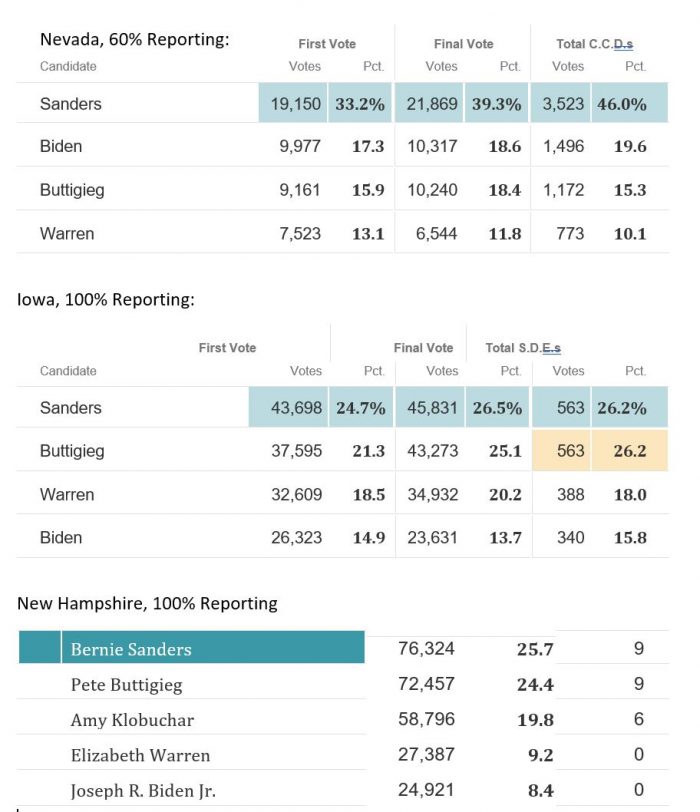In response to my first quick reaction to the Nevada caucus results, this post was to be a screed about how, if the Democratic Party were the Titanic, its response to seeing an imminent iceberg would be to head straight for it with increasing speed.
Maybe that will be the case eventually. But for now, despite the media’s always-present tendency to oversimplify (New York Times: “Sanders Takes Control” “Bernie Sanders Romps in Nevada. Is He Unstoppable?”; Washington Post: “Bernie Sanders decisively wins”), it’s worth taking a closer look at the Nevada caucus results (even though, as I write this, only 60% of the results have been released.) Here’s a table I made from data from the New York Times:

Two things jump out. First, while Sanders delegate count looks impressive (46% to Biden’s 20% and Buttigieg’s 15%), the raw vote totals tell a different story. Sanders got only 33.2% — less than one-third — of the first vote total in Nevada. This total is significantly less than combined first vote totals for the three more moderate candidates (43.3% when Klobuchar’s votes are added to Biden’s and Buttigieg’s). Second, the number of votes cast in Nevada is tiny compared to the number of votes cast in Iowa and New Hampshire; its Democratic caucus participants may be more diverse, but the sample size they represent is very small.
Add to this the fact that Mike Bloomberg was not running in Nevada (despite his horrible last-debate performance, he will still be a factor in the Super Tuesday states on the sheer force of his money), and the post-Nevada story of Bernie-As-Conqueror doesn’t hold up. Someone who cannot get more than one-third of the first-round votes in any of the first three contests should not be crowned the presumptive Democratic nominee.
So let’s all wait a minute. This race is far from over.
Categories: Blogging
